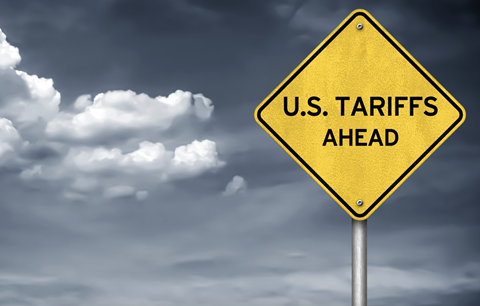Cathy Burns says application of tariffs on global trading partners could result in disruption to fresh produce supply chains, market stability and food prices

The International Fresh Produce Association (IFPA) has issued a warning over the raft of trade tariffs announced by president Donald Trump.
At his ’Make America Wealthy Again’ event on 2 April, Trump announced universal 10 per cent tariffs on all imports into the US from 5 April, as well as ”individualised reciprocal higher tariffs on the countries with which the United States has the largest trade deficits”.
A White House statement said that foreign trade and economic practices had ”created a national emergency”, with the president’s order imposing ”responsive tariffs to strengthen the international economic position of the United States and protect American workers”.
”President Trump refuses to let the United States be taken advantage of and believes that tariffs are necessary to ensure fair trade, protect American workers, and reduce the trade deficit – this is an emergency,” The White House outlined.
In response, IFPA chief executive Cathy Burns welcomed the decision to allow the continued trade of specialty crops under the US-Mexico-Canada Agreement (USMCA), but expressed concern over the tariffs’ wider impact on the global fruit and vegetable business.
“Fresh fruits, vegetables, and florals are among the most highly traded commodities across North America and beyond,” she said.
”Reducing trade barriers ensures that consumers continue to have access to fresh, affordable produce and floral products while supporting the growers and businesses that sustain the industry.
“However, IFPA remains concerned about the broader application of tariffs on global trading partners and the resulting disruptions to supply chains, market stability, and food prices worldwide,” Burns explained.
”The global trade of fresh produce is essential to the health and wellbeing of people in every nation.
”Targeted use of tariffs can be a tool for addressing inequities between trading partners, but broad application of this blunt tool often disrupts markets, raises consumer costs, and places unnecessary strain on growers and producers across the supply chain,” she commented.
Fresh produce trade was ”uniquely complex”, Burns continued, shaped by seasonal and regional factors that required a well-functioning market for year-round availability.
Once businesses lost market share, reclaiming it was difficult – if not impossible – dealing a ”lasting blow” to an industry vital to food security and economic stability, she said.
“We appreciate the administration’s commitment to easing regulatory burdens and supporting American agriculture,” Burns stated.
”We urge continued efforts toward long-term solutions that benefit fresh produce growers and businesses, including equitable trade agreements, regulatory reform, and policies that promote a stable agricultural workforce.
“IFPA looks forward to working with the administration on balanced solutions that protect growers, businesses, and consumers alike,” she added.



